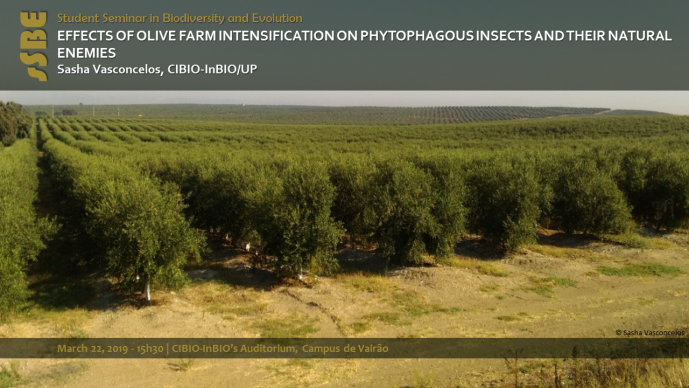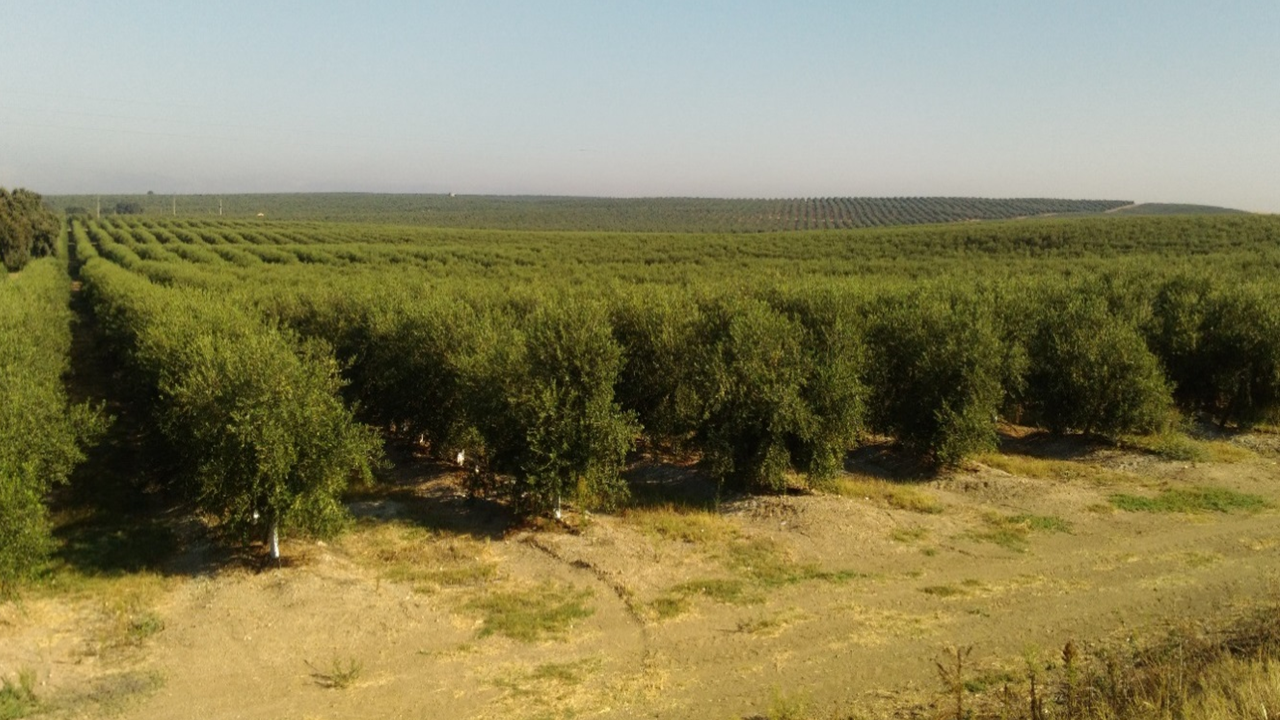EFFECTS OF OLIVE FARM INTENSIFICATION ON PHYTOPHAGOUS INSECTS AND THEIR NATURAL ENEMIES

STUDENT SEMINAR IN BIODIVERSITY AND EVOLUTION

Olive farms are progressively expanding in the Mediterranean region, and many have undergone a process of management intensification in recent years. Traditional farming systems involving little or no agrochemical input are rapidly giving way to intensive regimes with very high agrochemical application. However, in spite of this ongoing process of intensification, little is known of its consequences for biodiversity and associated ecosystem services, such as natural pest control. To address this issue, we compared the abundance of phytophagous insects and their arthropod natural enemies (predators and parasitoid wasps) across olive farms under different levels of management intensity, ranging from organic to superintensive regimes. Sampling was carried out in southern Portugal. Fifty-three sampling points within 34 olive farms were visited in Spring, Summer and Autumn 2017, and canopy arthropods were vacuum-sampled. Preliminary results revealed significant declines in the abundance of phytophagous insects and parasitoid wasps, whereas predator abundance did not vary across management regimes. Furthermore, farms with slow ripening and drought-tolerant olive varieties and greater amounts of herbaceous understory, typical of traditional systems, were associated with higher abundance of phytophages and lower abundance of predators.
Sasha is a PhD student in the APPLECOL group with interests focused on understanding the relationship between arthropods and their changing habitats, as a result of human-induced disturbance. At present Sasha is entering her third year of PhD studies in the BIODIV programme, working under the supervision of Pedro Beja (CIBIO-InBIO), Mattias Jonsson (Swedish University of Agricultural Sciences) and Ruben Heleno (Centre for Functional Ecology, University of Coimbra). Specifically, her thesis is centred on understanding how olive farm intensification is influencing arthropod communities, and the interactions between olive pests and their natural enemies.
[Host: Pedro Beja, Applied Ecology]
Image credits: Sasha Vasconcelos